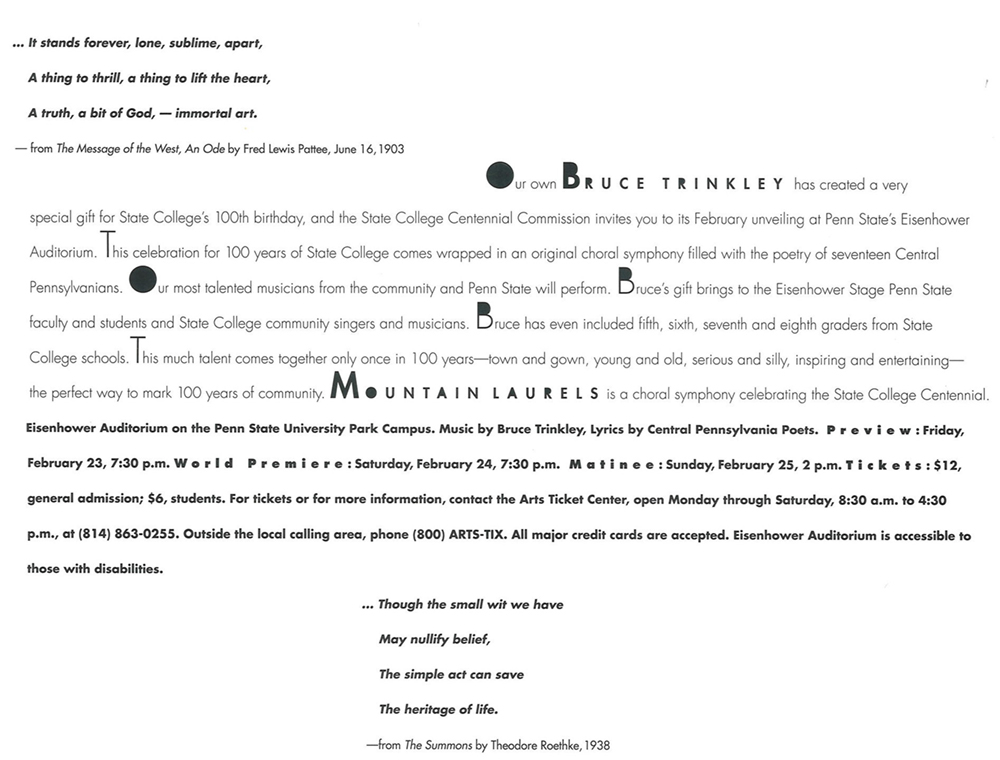Mountain Laurels: A Choral Symphony
PART I
PART II: The State College Radio Hour
PART III
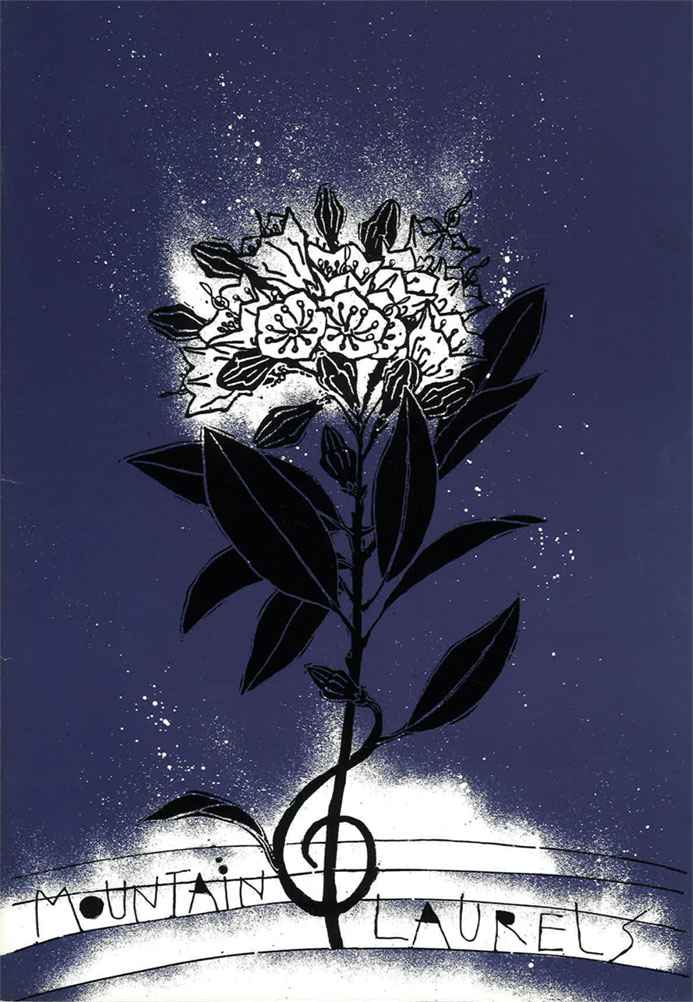
“I never meant to write a symphony . . . ”
This opens the Notes from the Composer in the printed program for the premiere in 1996 of Mountain Laurels: A Choral Symphony. The Notes go on to explain the genesis of my magnum opus and may be read in the program so beautifully designed by Lanny Sommese. Now I can see that the project is unique in music history, in its scope: beginning with a solo voice alone on stage, and concluding with a symphony orchestra accompanying two large choirs, one on stage and the other in the top tier of the concert hall; in its celebration of the poetry of a community through a century; and in the organization of the architecture and logistics of the performance so that there was never a moment when the audience had to wait while music stands or risers or performers were moved into place. It was a seamless performance, enabled by the stellar work of two collaborators: Lea Asbell-Swanger of Eisenhower Auditorium, who brilliantly designed and then coordinated the various performing areas in the vast expanse of the space; and Russell Bloom, who coordinated the movements onstage and backstage of some 1000 performers, from schoolchildren to adults, from solo harp to chamber ensembles and orchestras. Both Lea and Russell were acknowledged in the program. But now, as you read the program, look at the scores, and listen to the recording, you must know that Mountain Laurels was one of the most impressive and awesome of live performances, which these materials can only hint at. If only we had video-recorded the work – but we do have the magnificent CD, recorded and edited by the indefatigable Kent Klouser. And we do have the program, where you can read the genesis of the project and learn about the literary history of our community from Charlie Mann. You can also read the poems, learn about the poets and performers, and peruse the names.
Mountain Laurels was always about the poets and their poems. Even the title is a tribute to them. I thank these 17 poet collaborators. And I thank the nearly 1000 performers and their conductors who brought the words and music to life.
So now the house lights in Eisenhower Auditorium darken; the stage lights come up on two singers, a harpist and her instrument. And the inspiring words of Fred Lewis Pattee sing out. The magic begins . . .
Mountain Laurels : A Choral Symphony
Lyrics by Central Pennsylvania poets.
Commission: Joint commission by the Pennsylvania Council on the Arts and the State College Centennial Commission.
Premiere: February 23, 24 and 25, 1996 Eisenhower Auditorium, Penn State University.
All recordings from the Premiere performance in February 1996. Recorded and edited by Kent Klouser.
Scores are the versions for chorus and piano. Full scores and parts available from the Composer.
The Program (designed by Lanny Sommese)
View the complete printed program from the Premiere.
Read the Centennial Welcome from local dignitaries.
Read the Composer’s Notes.
Read The Poets of Mountain Laurels by Charlie Mann (1929-1998).
Read the Poems.
Read So What Is Froth Anyways? by Art Ward (1927-2017) and Art Stober (1924-2016).
Read the Poets’ Biographies.
Read about the Performing Artists with lists of performers in each ensemble.
Read the Soloists Biographies.
Read the Special Thanks and Composer’s Acknowledgements.
PART I
PROLOGUE
from The Message of the West, an Ode Poem by Fred Lewis Pattee (1863-1950) for 2 sopranos and harp.
With Holly Anderson, soprano; Kimberly Burkhard, mezzo-soprano; and Elizabeth Asmus, harp.
View score. Listen to Holly, Kim and Elizabeth.
The Ode was delivered June 16, 1903, at the Dedication of the Auditorium, Presented by Mr. and Mrs. Charles M. Schwab to the Pennsylvania State College.
Excerpt from The Message of the West
A poem is a glimpse, a faltering ray
From out that larger day . . .
It stands forever, lone, sublime, apart,
A thing to thrill, a thing to lift the heart,
A truth, a bit of God – immortal art.
The Mountain Poem by J. Jason Charnesky for SATB Chorus, a cappella
Penn State Concert Choir, D. Douglas Miller, Director
View score. Listen to the Concert Choir.
After I had selected and organized the poems to be set to music, I realized that no poet had penned a tribute to our beloved landmark, the Nittany Mountain. I asked Jason Charnesky if he would write a text and he provided “The Mountain” for the beginning of the choral symphony. He also wrote a poem honoring the iconic arbor on the Mall, “The Fire Elms.” Both of these poems have concluding lines that generated a lyric and musical leitmotif that occurs at keystone moments of the symphony and ties so much of it together.
Seasons Four choruses for SSAA and piano or string orchestra and harp.
Yelton Rhodes YR4900
Seasons, the choral cycle for women’s voices from Mountain Laurels: A Choral Symphony , was written for and premiered by the Oriana Singers, directed by Lynn Drafall. The poems were all by Central Pennsylvania poets. The essence of each poem is captured in the variety of styles used in the settings, from autumnal lyricism to poignant winter to the blossoming of spring and concluding with the exuberant celebration of summer. A feast for the singers in a celebration of the seasons.
1. Lovely October Poem by Joseph Grucci (1908-1992). View score sample. Listen to Oriana.
2. Elm Trees Poem by Emily Grosholz. View score sample. Listen to Oriana.
3. Notebook for May Poem by Deborah Austin (1920-2013). View score sample. Listen to Oriana.
4. Sun Poem by Melinda Mucha. View score sample. Listen to Oriana.
Full score (chorus, harp and strings) and parts available from the composer.
MOUNTAIN AIRS for chamber choir, a cappella
Read the poems to Mountain Airs. View the full score.
1. Introduction Poem by Maya Spence from Pivot 1974. View score. Listen.
2. Missa Papae Marcelli (Palestrina 1525-1594)
Poem by Deborah Austin (1920-2013) from The Paradise of the World (1964). View score. Listen.
Madrigal Singers, State College Choral Society, Russell Shelley, Director
3. from Gathering of Friends after the Fall of the Sung Dynasty
Poem by Emily Grosholz from The River Painter (1984).
View score. Listen.
4. Furniture Poem by Dorothy Roberts (1903-1996) from Extended (1967).
View score. Listen.
Pennsylvania Chamber Chorale, D. Douglas Miller, Director
5. Reading at the Arts Festival Poem by John Balaban from Pivot 1981.
View score. Listen.
6. Song for the Thumb Piano Poem by John Haag (1926-2008).
With piano or four thumb pianos and string bass.
View score. View score for choir, thumb pianos and string bass. Listen.
Penn State Chamber Singers, D. Douglas Miller, Director
Though each is written by a different poet, these six texts together form a wonderful piece for unaccompanied chamber choir, actually three chamber choirs as three different community groups collaborated in this piece, each group singing two songs apiece. They sang in front of the closed curtain (what in old theatrical jargon is known as “in one”) so that stage hands could set up the risers for the next large choral piece. This allowed the various cycles of Mountain Laurels to flow into each other without the delay of waiting for stagehands to finish their set-ups between each number.
JOURNEYS for men’s chorus and piano or brass quintet and timpani.
Premiere by the Penn State Glee Club and School of Music Brass Quintet.
View score. Listen to the Glee Club.
2. I Know a Road Poem by Joseph Grucci (1908-1982)
View score. Listen to the Glee Club.
3. Drypoint: evening of first snow Poem by Deborah Austin (1920-2013) View score. Listen to the Glee Club.
4. Spring Fever Poem by Emily Grosholz.
View score. Listen to the Glee Club.
Other performances: Homecoming Concert, Schwab Auditorium. October 28, 1995. Eastern Regional Convention of ACDA, Philadelphia, February 3, 1996.
Concert tour to Wales, March 3, 4, 5, 1996. London, Welsh Centre, March 7, 1996.
MOTHER NATURE For young voices and piano.
Premiere: State College Elementary and Middle School Choruses.
View notes and poems. All recordings are from the premiere in Eisenhower Auditorium in February 1996.
View score. Listen to chorus.
2. Food Songs: The Egg Poem by John Haag (1926-2008) from Pivot (1981)
View score. Listen to chorus.
3. Mid-country Blow Poem by Theodore Roethke from Open House (1941)
View score. Listen to chorus.
4. Winter Fire Poem by Jack McManis (1917-1989) from manuscript
View score. Listen to chorus.
5. April Snow Poem by E. H. Knapp (1922-2012) from manuscript
View score. Listen to chorus.
6. dandelions Poem by Deborah Austin (1920-2013) from The Paradise of the World (1964)
View score. Listen to chorus.
7. Song to a Coy Parent Poem by John Haag from The Mirrored Man (1961)
View score. Listen to chorus.
IMAGES AND ELEGIES for SATB chorus and piano
Penn State Concert Choir, D. Douglas Miller, Director
Read the poems. View the full score.
2. The Premonition Poem by Theodore Roethke (1908-1963) from Open House (1941). View score. Listen.
3. Elegy for the Swans at Grace Pond Poem by Bruce Weigl from What Saves Us (1992). View score. Listen.
4. The Apples Poem by Dorothy Roberts (1903-1996) from Self of Loss (1965). View score. Listen.
5. Indian Summer Poem by Robert Lima (1935-2022). View score. Listen.
6. Haiku Trio Poem by Bill Hanson (1928-2017) from January 1988.
View score. Listen.
7. Distinct Poem by Dorothy Roberts (1903-1996) from Extended (1967). View score. Listen.
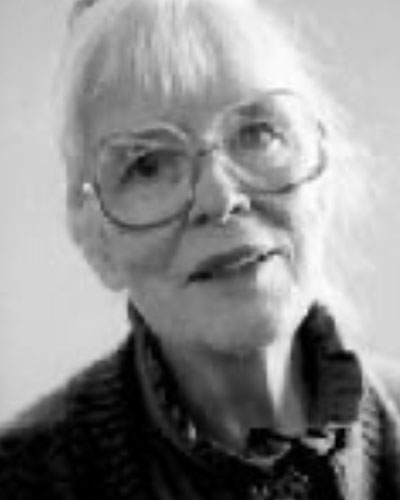
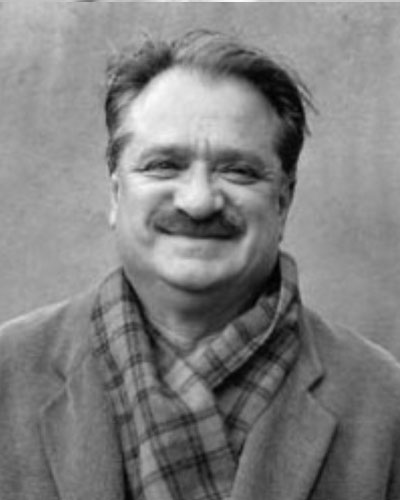
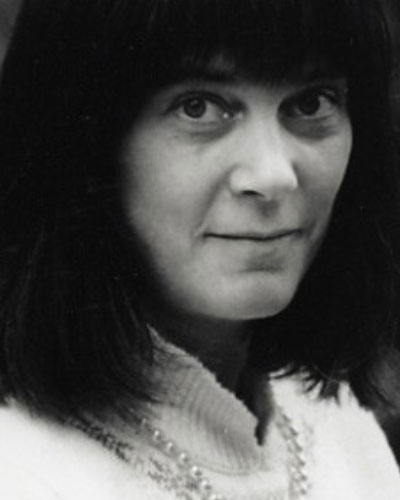

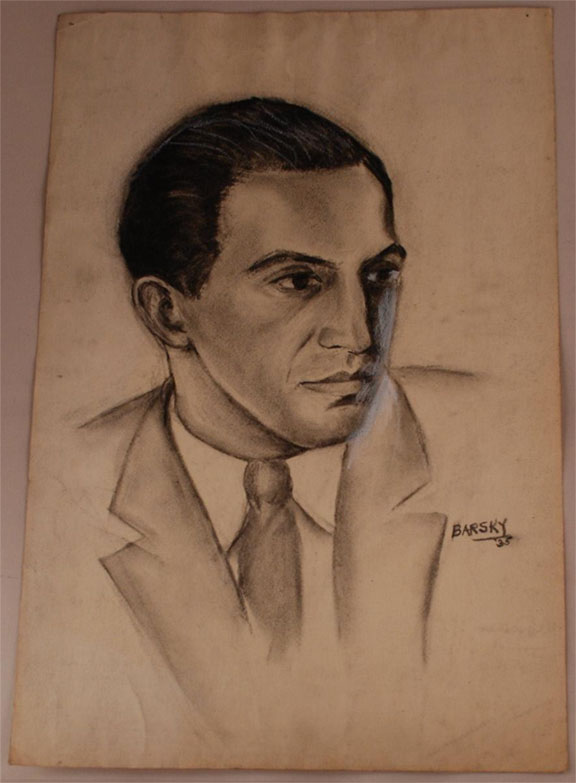
by Sybil Barsky Grucci (1928-2001)
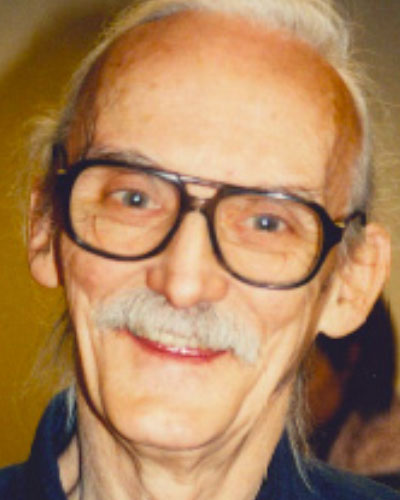
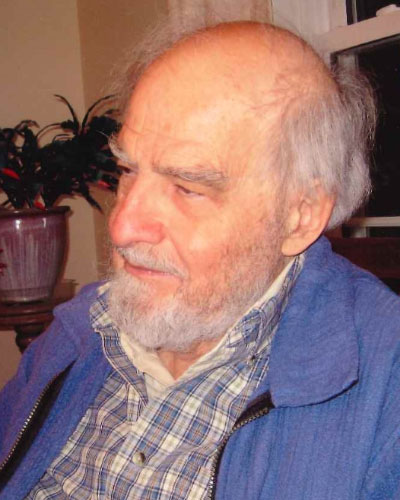

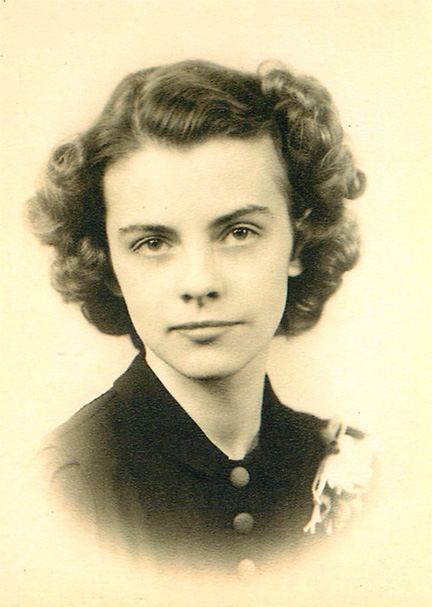
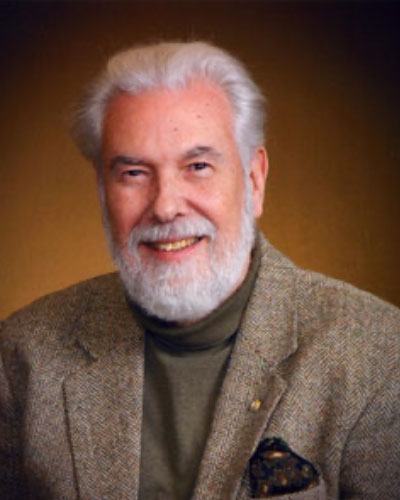

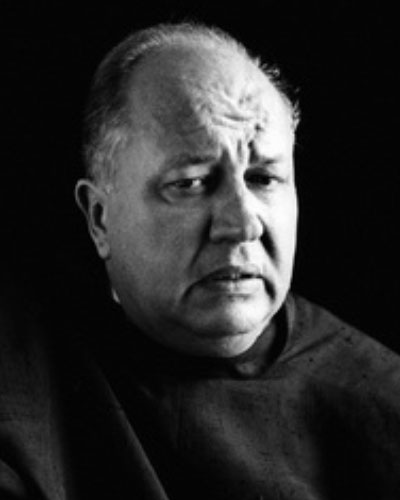


PART II
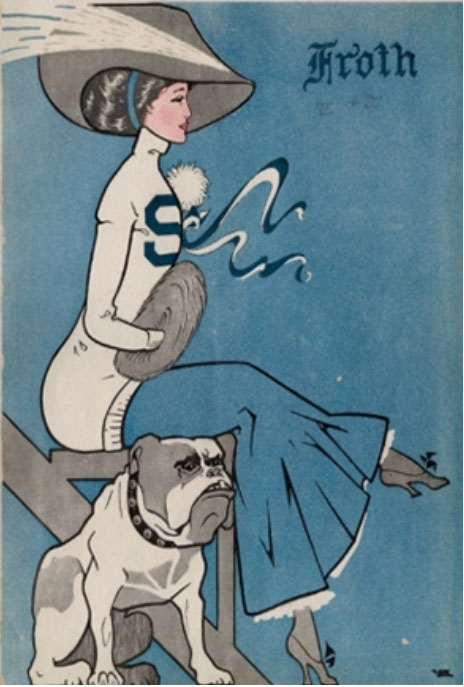
OLD MAINIA: The Pennsylvania State College Radio Hour
Texts drawn from Froth, The Penn State Humor Magazine 1910 - 1970's
Combined Choruses and the
State College Municipal Band, Ned C. Deihl, Conductor;
Jane Ridley, narrator (The Voice of Old Main).
The second part of Mountain Laurels was conceived as an entertainment in the form of a vintage 1940s radio variety show. The texts were drawn from student humor publications through the decades and the show was designed to provide a vivid contrast to the staid concert formats for Parts I and II.
I found a treasure trove of humor - poems, snippets, and satirical verses – that I knew would be appropriate for and appreciated by our smaller ensembles: the Hilos from the Glee Club, Discantus from Oriana Singers, and most especially by the Nittany Knights Barbershop Chorus. This disparate material was assembled into sets – with more punning titles starting with Old Mainia – alluding to the historic building on campus – Old Main. Frothiana is an obvious allusion to the choral classic by Randall Thompson and Robert Frost – Frostiana – the initial inspiration for this project. Frothy Encores followed suit, with a double pun for Discantus with The Descant of Man and the Hilos spoof on college life, The Grooves of Academe.
The Radio Hour opened with an overture for band, an instrumental version of dandelions, the tune that the children’s chorus had just sung in Mother Nature. Then we hear the voice of Old Main, played superbly by Jane Ridley from the School of Theatre. She guides us through the madcap assembly of songs. But the Radio Hour also included a heavy dose of nostalgia since Froth often featured tributes to campus traditions with songs from the classes. Most touchingly, The Willow, about the beloved ancient tree on the Mall that was said to have come from a cutting from a willow in the garden of English poet Alexander Pope in Twickenham, England. The Willow is featured after the Overture and then concludes the Radio Hour as the final number in a medley of college songs, all settings of nostalgic sentimental texts from Froth.
View score. Read the poem. Listen: State College Municipal Band, Ned C. Deihl, Conductor
The Willow from Froth February 1912. For SATB chorus and piano.
Versions with chamber ensemble and band also available.
View score. Listen to the Women's Chorale, the Band and Jane Ridley.
Chamber Ensemble of winds and the Penn State Women's Chorale, Paul McPhail, Director
FROTHIANA Four tags for barbershop quartet or chorus. Texts from Froth, the Penn State humor magazine.
Premiered by The Nittany Knights, the Central Pennsylvania Barbershop Chorus.
THE GROOVES OF ACADEME: Four Revolutionary Folk Songs for men's small ensemble and piano, with optional bass and drums. Texts from Froth.
Premiered by the Hilos from the Penn State Glee Club.
2. The Party View score. Listen to the Hilos.
3. Radical Rag (Ron Bonn ‘52) View score. Listen to the Hilos.
4. “I hate the guys who . . . “ View score. Listen to the Hilos and the Voice of Old Main bid adieu.
FROTHY ENCORES Four more tags for barbershop quartet or chorus. Texts from Froth.
Premiered by The Nittany Knights.

THE DESCANT OF MAN Three Evolutionary Love Songs for SSA, piano and optional string bass.
Composer’s Note: The title is a triple pun on both Charles Darwin’s The Descent of Man (1871) and the name of the choral group for which the set was written, Discantus, the small elite ensemble from the Oriana Singers at Penn State. With their ebullient choral and piano writing and the feisty texts from the 1940s that poke fun at men and their sexual urges, The Descant of Man enables women to celebrate their own identity with humor and sauciness.
You can purchase the out of print octavos for less than a tamale ($1.00). Download the scores and listen to the premiere performances by the inimitable women of Discantus. These pieces are ideal for progressive high school and college women, as well as women of experience. Audiences will delight in the rare treat of truly bawdy and cartoonish humor, all presented with smiles and laughter.
View octavo. Listen to Discantus.
2. Natural Love text from Froth, Autumn 1946.
View octavo. Listen to Discantus.
3. Burning Kisses text from Froth, February 1949.
View octavo. Listen to Discantus.
He asked for burning kisses.
She said in accents cruel –
“I may be a red-hot mamma,
But I ain’t nobody’s fuel.”

WILLOW SONGS: An Old College Medley for chorus and band.
Combined Choruses and the State College Municipal Band, Ned C. Deihl, Conductor.
View the Willow Songs poems. View the full score.
After a choral lifetime of singing, researching, assembling and conducting and recording college songs at Columbia during my student days and as Glee Club Director and then as a faculty member at Penn State, I was delighted to compose a set of original college songs using some very lovely and lyrical – and yes, sentimental and nostalgic – texts from Froth, just as Fred Waring was moved to write several college songs for Penn State, his alma mater. Willow Songs fills a special niche in Mountain Laurels and I hope they will become part of the repertory of Penn State songs. I hope you, dear listener, will enjoy hearing them – and maybe even sing along.
Here's a toast to Our Alma Mater,
Here's a toast to her name so clean:
God give us strength to keep it so,
The class of Old Fourteen.2. The Campus from Froth June 1910. For SATB chorus and piano with opt. flute, clarinet and string bass.
View the score. Listen.
To match the literary style of this lovely old text, I chose a musical style reminiscent of the early decades of the 20th century.
Oh thou broad campus, green and gay,
If thou could speak what would thou say? . . .
Ah, many a fond sight thou hast seen,
Thou dear old campus fair and green.3. 1912 from Froth June 1912. For SATB chorus unaccompanied. View the score. Listen.
Come, seniors, come, and let us sing,
Let all our voices raise;
Let's sing a song, a good old song,
For dear old bygone days! . . .
So, ere we leave, for parts unknown,
No matter where we delve,
Let's sing a song, a parting song,
To dear old Nineteen Twelve!4. The Willow (Reprise) from Froth February 1912. View the score. Listen.
Not many springs will see thy leafy maze,
Of drooping branches; few the sands that meet.
Beneath thy shade in future years to gaze,
On faces long forgot and tales repeat,
For those who should have guarded thee with great
And deep love may have come too late, too late.
PART III
The final section of Mountain Laurels pulls out all the stops, with two choral cycles, each with orchestral ensembles, separated by a song cycle with various accompanying ensembles.
FOUR TOCCATAS for SATB chorus and piano. Also available for chorus and chamber orchestra. Contact the composer.
Composed for and performed by the State College Area High School Concert Choir, Jessica Barth, Director. Central Pennsylvania Youth Orchestra,
Alex E. Hill, Director.
Read the poems. View the full score.
As was the case throughout Mountain Laurels, the poems in Four Toccatas were chosen specifically for the performing ensemble, in this case high school choral and instrumental musicians. Each poem is didactic, with the poet sharing advice for fellow citizens and inhabitants of this planet.
View the SATB and piano score. Listen to the Concert Choir and Chamber Orchestra.
The quote is from the last line of Gerard Manley Hopkins’ poem “Inversnaid” where Hopkins makes an environmental plea that Roethke carries into his own poem. Roethke’s father was a gardener and nature images abound in his poetry.
Long live the weeds that overwhelm
My narrow vegetable realm!
2. Reply to Censure Poem by Theodore Roethke (1908-1963) from Open House (1941).
View the SATB and piano score. Listen to the Concert Choir and Chamber Orchestra.
The poem relates on a very personal level that one must stand for what one believes, even though it is difficult and dangerous. It is almost a study for The Summons, Roethke’s Phi Beta Kappa poem of 1938.
The bold wear toughened skin
That keeps sufficient store
Of dignity within,
And quiet at the core.
3. Lute Song Poem by Robert Lima (1935-2022) from Eye of the Beholder.
View the SATB and piano score. Listen to the Concert Choir and Chamber Orchestra.
Professor Sir Robert Lima’s poem encapsulates everything that this symphony is about:
Joy is in the making
of instruments that bring elation
of music that the fingers sing
Joy is in the leaping
through time, geography and lore
through planes of magnitude and depth
Joy is in the sensing
oneness with the master hand
oneness with the inner ear
4. Before You Inhabit Another Star by Joseph Grucci (1908-1982) from The Invented Will (1962)
View the SATB and piano score. Listen to the Concert Choir and Chamber Orchestra.
A poem of environmental consciousness couched in cosmic allusions, a poem far ahead of its time. It’s concluding lines provided one of the poetic and musical leitmotives that permeates Mountain Laurels:
O man, before you inhabit another star,
Let fall the rain
Here, let it fall to stir
The sleeping sand.
SUMMER EVENINGS Cycle of 7 songs for 5 solo voices and various instrumental ensembles.
Read the poems. View the full score.
(These were the first pieces in Mountain Laurels to be performed: at Encore Books, State College September 29, 1994.)
Like its namesake, Berlioz’s Les nuits d'été, my Summer Evenings is an eclectic group of songs for 5 singers accompanied by the faculty chamber ensembles at Penn State. Each singer has a solo song with a different chamber ensemble, and then all come together for the concluding two chamber works. When the curtain behind them opens, this vocal and intrumental ensemble has suddenly grown into the State College Choral Society and the Nittany Valley Symphony – through a feat of stagecraft!
All of the texts are pastoral and/or suburban. However Roethke’s Idyll has a very stealthy and devastating concluding line, that makes this piece one that everyone in American today should pay attention to.
View the score. Listen.
Barbara Hess, mezzo-soprano; Castalia Piano Trio: Marylène Dosse, piano; James Lyon, violin; Kim Cook, cello.
2. Poem with a Moon Poem by John Balaban from Blue Mountain (1982).
View the score. Listen.
Richard Kennedy, tenor; Alard String Quartet: Joanne Feldman, Donald Hopkins, violins; Raymond Page, viola; Leonard Feldman, cello
3. Eden Poem by Emily Grosholz from Eden (1992).
View the score. Listen.
Suzanne Roy, soprano; Castalia PianoTrio and the Alard String Quartet.
4. The Eye in the Forest Poem by John Haag (1926-2008)
View the score. Listen.
Norman Spivey, baritone; Pennsylvania Quintet: Eleanor Armstrong, flute;Tim Hurtz, oboe; Smith Toulson, clarinet; Lisa Bontrager, horn; Daryl Durran, bassoon.
5. Night Journey Poem by Theodore Roethke (1908-1963) from Open House (1941).
View the score. Listen.
Susan Boardman, soprano; trio, string quartet and woodwind quintet.
6. Idyll Poem by Theodore Roethke (1908-1963) from Open House (1941).
View the score. Listen.
Vocal quintet and combined ensembles, Pu-Qi Jiang, Conductor
The world recedes in the black revolving shadow;
A far-off train blows its echoing whistle once;
We go to our beds in a house at the edge of a meadow,
Unmindful of terror and headlines, of speeches and guns.
7. Adam's Puzzle Poem by Katey Lehman (see her biography on the Mountain Laurels program bio page)
View the score. Listen.
Vocal quintet and combined ensembles, Pu-Qi Jiang, Conductor
If my spirit
differs from my soul,
and I concur with this conceit,
how do I deal
with my erratic spirit,
and where, thereafter,
goes my soul?
My spirit leaps
toward shining hair,
to sunlit butterflies, from there
to hummingbirds that hover
in the blossoms of my fragrant quince,
and then to anything that hovers
and, mid-air, turns my moods to altered colors.
My soul goes pressing toward the ground,
and then goes upward, falling
to the sound of geese,
and way beyond . . .
down and up and out and all around.
God gave Adam a body, a spirit,
and a soul.
My spirit goes with what I see.
My soul knows all the mystery.
KEYSTONES For SATB choir and piano. Also for 2 choirs and orchestra. Contact the composer for orchestra scores and parts.
Composed for the State College Choral Society and the Nittany Valley Symphony, conducted by D. Douglas Miller.
Read the poems. View the full score.
Just as Pennsylvania became known as the Keystone State due to its history – and location – connecting New England to the rest of the Union, this cycle of four works for large choir and symphony orchestra serves to connect and unify all of the preceding compositions both poetically and musically. Although conceived as a unit, each piece may be performed separately by any size choir and with piano.
Read the poem. View the SATB and piano score. Listen to live performance with orchestra.
Roethke, one of the most well known American poets of the mid-Twentieth Century, taught English at Penn State from 1938 to 1948 and also coached the varsity tennis team. The title poem of his first book of poetry expresses the author’s intensity in expressing his emotions, ranging from love, anger and rage and finally to agony. “The deed will speak the truth” and “I stop the lying mouth.” The bold vocal lines and tortured harmonies are a dramatic expression of the poet’s emotions.
2. The Child of Many Winters Poem by John Haag (1926-2008) from The Mirrored Man (1961).
For chorus and piano with optional bells and tambourines.
Read the poem. View the SATB and piano score. Listen to live performance with orchestra.
John Haag studied with Roethke at the University of Washington. He brings his own world-view, one of lyricism and magical reality in this poem celebrating music itself, with a rare instance of tone-painting in the symphony.
Excerpt from The Child of Many Winters
The child of many winters came
And stared into the fountain where
The lost bells ring. . . tambourines
of silver sounded . . . while she waited for
The clearest image to appear –
And listened for the bells to ring.
3. Lieder Poem by Deborah Austin (1920-2013) from The Paradise of the World (1964).
For chorus and piano with optional flute.
Read the poem. View the SATB and piano score. Listen to live performance with orchestra.
Beloved teacher and poet Deborah Austin loved music and was a singer herself in the State College Choral Society. Her tribute to the beauty and power of poetry is set here at the apex of Keystones as a lyrical and emotional climax to the entire symphony.
Lieder
Birds sing, (but not for human hearts)
lean down the wind and so are gone.
This music wells from nearer home;
we listen and are not alone –
in places where no strangers come,
familiar strolls this least of arts
that is all art, all truth, all song;
that heals by wounding us, and by
always dividing false from true
insists on beauty, gracefully
confirming what we really knew:
nothing not found here can last long.
4. The Summons Poem by Theodore Roethke (1908-1963). For chorus and piano.
Read the poem. View the SATB and piano score. Listen to live performance with orchestra.
In 1938 the Penn State chapter of The Phi Beta Kappa Honor Society commissioned Roethke to write a poem. The poem was never published and remained in the Rare Books Room of Pattee until Charlie Mann, Rare Books Librarian extraordinaire, provided a copy to me. I immediately knew this was to be a major setting as the culmination of my Choral Symphony. Roethke’s devastating indictment of the totalitarian regimes rising in Europe is as potent today as it was in 1938. I hope The Summons will find performances by groups seeking works about contemporary issues that are even more important today.
Excerpt from The Summons
The impulse long denied,
The lips that never move,
The hatred and the pride, –
These can be turned to love.
Now we must summon all
Our force, from breadth to length,
And walk, more vertical,
Secure in human strength.
EPILOGUE: The Fire Elms by J. Jason Charnesky. For choir and piano. Original version for two choirs and orchestra.
Penn State University Choir, Anthony Leach, Director
State College Choral Society, Nittany Valley Symphony, D. Douglas Miller, Conductor.
View the SATB and piano score. Listen to live performance with orchestra.
After I had selected and organized the poems for Mountain Laurels, I realized that no poet had penned a tribute to our beloved landmark, the Nittany Mountain. I asked Jason Charnesky if he would write a text about the icon of Happy Valley. He provided “The Mountain” for the beginning of the choral symphony. But he also wrote a poem honoring the iconic arbor on the Mall, “The Fire Elms.” The symphony could not have a more fitting conclusion than the one Jason Charnesky provided. And the concluding lines generated a lyric and musical leitmotif that occurs at keystone moments of the symphony and ties it all together.
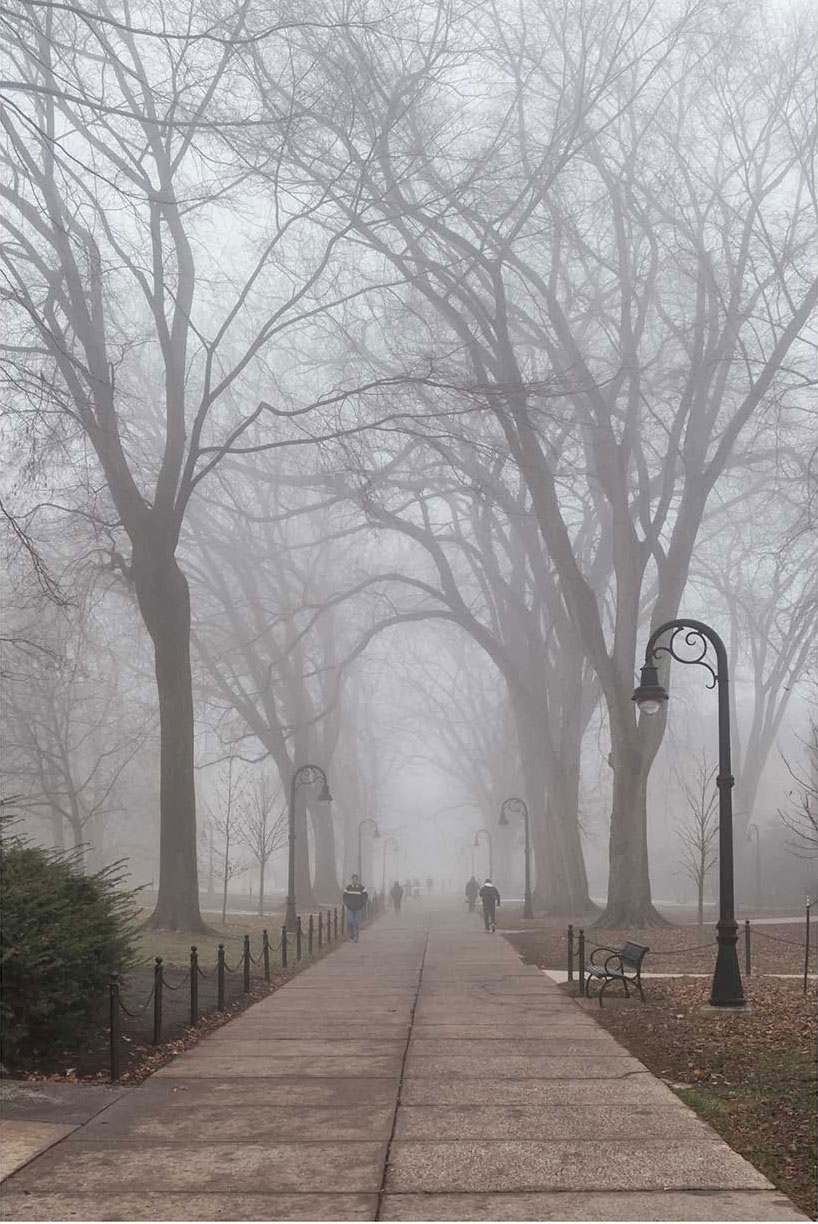
From the start of the stars
when that first garbled night
blazed out in cosmic light
all was fire, all was fire,
and the flame passed along
to the fire blossomed birth
of our fair risen earth
all afire.
Now the light lay well hid
within flower and beast,
the most vast and the least
each a fire, each a fire.
Every ordinary tree
bears a mark from the realm
of the star. And our elms
are on fire.
And the elm gabled mall
where we walked in our youth
echoed passion and truth, all on fire, all on fire.
Though we thought these dark trees
wooden-hearted and cold,
We were brave, clever and bold,
and on fire.
Half our life now well spent,
those grand trees span the mall,
we are stooped, they are tall,
and the fire, and the fire
has passed on to the eyes
of the youth-blooming crowd
walking careless and proud
and on fire.
For the sons of the daughters
of the daughters of our sons
will discover in their turns
some pure fire, some pure fire,
and will strike out as if
all the world waited through
all of time for their new
urgent fire.
What if tree turn to dust,
or the sea overwhelm
dusty plain, and each elm
once a fire, once a fire,
should sink back to the earth?
Every birth is as swift.
Let us merit the gift –
Life, Love, Fire.
